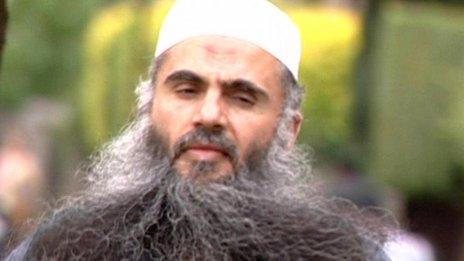Abu Qatada deportation: May 'deeply frustrated' at legal obstacles
- Published
Theresa May: "Deeply frustrating that he's still here"
Home Secretary Theresa May has said she is "deeply frustrated" at continued legal obstacles to the deportation of radical Islamic cleric Abu Qatada.
The government is seeking to challenge a Court of Appeal ruling that he could face an unfair trial if he is deported to Jordan to face terror charges.
Mrs May suggested the European Court of Human Rights had "moved the goalposts" in the long-running case.
But Tory MP Mark Reckless accused her of a "craven surrender" to the Court.
In April 1999, Abu Qatada was convicted in his absence on terror charges in Jordan and sentenced to life imprisonment, and it is on these charges that he faces a retrial. He has never been charged with an offence in the UK.
Successive UK governments have fought a lengthy battle to have Abu Qatada deported to Jordan and Mrs May said last year that she hoped that he would "shortly" be put on a plane.
But these efforts suffered a setback last month when Court of Appeal judges said there was a risk that "impugned statements" obtained by the torture of others would be admitted in evidence against him and there was "a real risk of a flagrant denial of justice".
'Outwitted'
The government, which has previously received assurances from its Jordanian counterpart that this would not be the case, is seeking leave to appeal against the Court's judgement by taking the case to the Supreme Court.
Appearing before the Commons Home Affairs Committee, Mrs May came under fire from Conservative and Labour MPs about the length of time it was taking to remove Abu Qatada from the UK.
Labour's Keith Vaz, who chairs the committee, compared the legal battle to a five-set tennis match at Wimbledon - "May versus Qatada" - which "goes on for ever and ever" and said the government's lawyers had been "constantly outwitted" by those representing the cleric.
Conservative Michael Ellis said the whole country was "fed up" with the length of time it was taking.
Asked who was to blame for the latest delay, Mrs May said Jordan had changed its constitution relating to the admissibility of evidence allegedly obtained by torture but the new provisions had not been legally tested and there was a difference of opinion over its validity.
While the UK's Special Immigration Appeals Commission had accepted Jordan's assurances, she suggested the European Court of Human Rights - which is based in Strasbourg - had raised new legal points that had to be addressed.
"Strasbourg moved the goalposts," she said. "They set a new test... We have to operate on the basis of the situation we now find ourselves in."
Whatever its views on the case, Mrs May said the UK was a member of the Court and a signatory to the European Convention of Human Rights and could not simply "ignore everything Strasbourg says".
But Mr Reckless said the Law Lords ruled in 2009 that Abu Qatada could be removed and the government should seek the Supreme Court's jurisdiction on the matter on this basis rather than going back to Strasbourg.
"The reason you have been unable to get rid of Abu Qatada is because you have refused to test the law on this and seek to get the British courts to uphold the British judgements previously," he said.
"The problem is you are refusing to seek to send him back because you prefer to put yourself down before Strasbourg and have this continued craven surrender to the European Court."
'No date'
Mrs May rejected this, saying the legal "background" had changed since 2009, adding: "The suggestion that if the government had merely done a slightly different thing Abu Qatada would have been deported is wrong."
Asked when he would finally be deported, she said she "couldn't put a date on it and it would be silly for me to put a date on it" but insisted it remained her aim to see it happen as soon as possible.
Abu Qatada was first arrested in October 2002 in south London and detained in Belmarsh high security prison. He was re-arrested and released on bail a number of times over the years that followed.
In November 2012, he was released on bail when the courts blocked the home secretary's attempt to deport him to Jordan, but was arrested last month for allegedly breaching the strict bail conditions.
Asked by Labour's David Winnick whether Abu Qatada could still be prosecuted in the UK, potentially for the offence of incitement to religious hatred, Mrs May said the police were considering material discovered at the time of his re-arrest.
"In the current situation, the breach of bail conditions and what was discovered in the house is being looked at to see whether that is evidence that would lead to a prosecution in this case," she said.
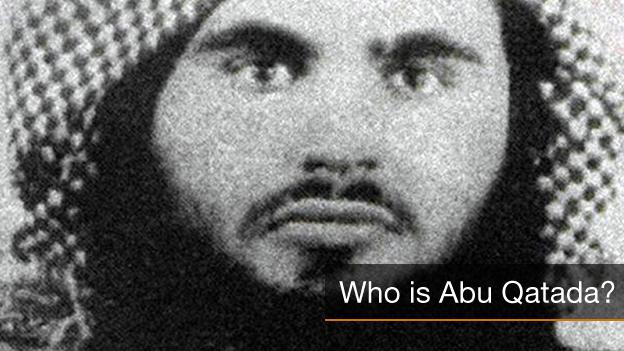
Abu Qatada was born in Bethlehem in 1960 and spent his early life in Jordan. He fled to Pakistan in 1989 claiming political persecution and eventually arrived in the UK in 1993. Abu Qatada was part of a wave of Islamists who sought refuge in the UK during the 1980s and 90s, often exiled from the Arab regimes they were trying to overthrow.
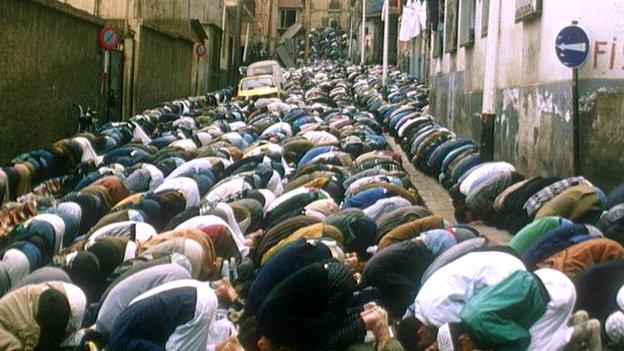
Abu Qatada emerged as a key voice in the Islamist movement in London, which advocated strict Islamic government in Muslim countries and armed struggle against despots and foreign invaders. His preachings and ideas won him influence among Islamist groups in Algeria and Egypt during the 1990s. He was tried and found guilty in his absence of terrorism offences in Jordan in 1999.

By 2001 fears were growing about Abu Qatada's hard-line views. He endorsed suicide attacks in a BBC interview and was questioned in connection with a German terror cell. Copies of his sermons were found in the Hamburg flat used by some of the 9/11 attackers and Spanish judge Balthazar Garzon described him as the "spiritual head of the mujahideen in Britain". In December 2001, Abu Qatada disappeared and became one of the UK's most wanted men.
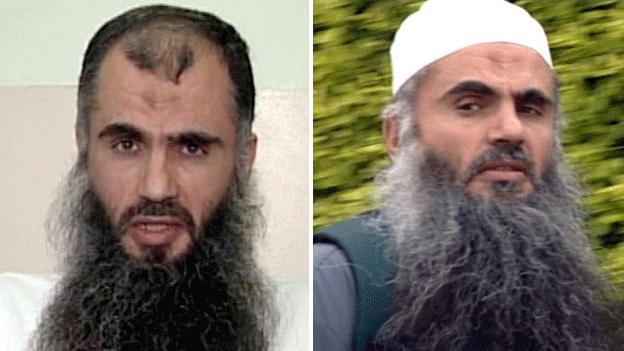
In October 2002 Abu Qatada was arrested and detained without charge. He was released in 2005 and put under strict house arrest, but months later was arrested under immigration rules and moves began to deport him to Jordan to face retrial on the charges he had been convicted of six years earlier. In 2007 he lost his immigration case, but the Court of Appeal later ruled that deportation to a regime which uses torture - ie Jordan - would breach his human rights.
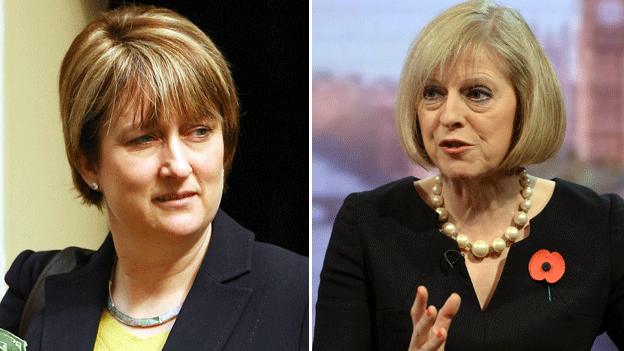
The Court of Appeal ruling was overturned by the Law Lords in early 2009, and the then Home Secretary, Jacqui Smith (L), signed a deportation order. Abu Qatada then appealed to the European Court, which eventually ruled that he could not be deported while the risk of torture remained. In 2012 Home Secretary Theresa May (R) pressed ahead with deportation, but this was blocked amid a row over the appeal deadline.
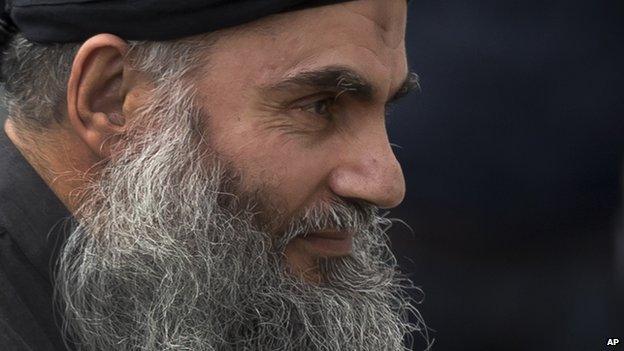
In November 2012 Abu Qatada was released from prison once more after a UK court backed his appeal on the grounds that witness evidence obtained by torture could be used against him at trial in Jordan. That was a disastrous blow to the Home Office because it meant the only way the deportation could happen would be if Jordan changed its system to ensure torture-tainted evidence could not be used.
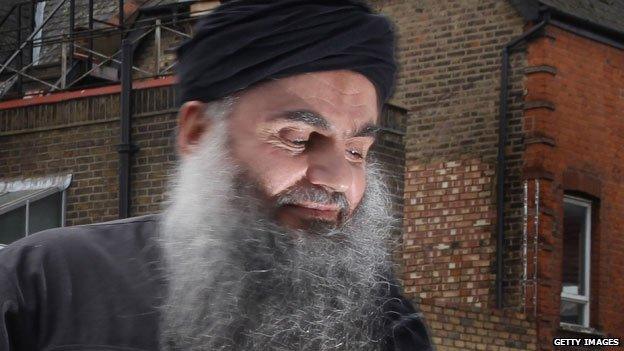
Abu Qatada was then returned to prison on 9 March 2013 after an alleged breach of his bail conditions - but this deportation was still blocked. Weeks later, Home Secretary Theresa May announced a new UK-Jordan treaty to improve co-operation in criminal investigations. That treaty included a guarantee of a fair trial free of torture-tainted evidence for anyone sent back to Jordan. Abu Qatada's lawyers announced he would now return to Jordan.
- Published10 May 2013
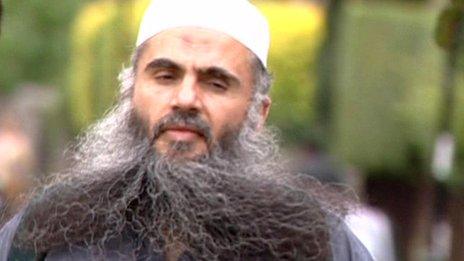
- Published26 June 2014
